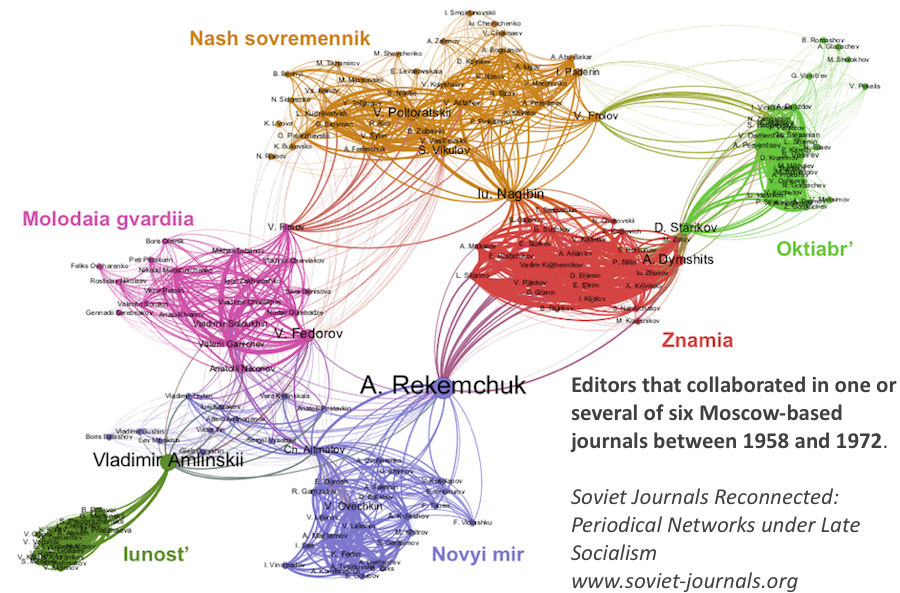2018 Dissertation Prize Honoree Reflects on Research, Community
Editor's Note: The deadline for the 2019 CDH Dissertation Prize has been extended to May 4, 2020. The Prize recognizes outstanding doctoral work with a digital humanities component. Princeton alumni who defended their dissertation in 2019 are eligible. You can find more information about the Dissertation Prize here.
Last year’s CDH Dissertation Prize went to Philip Gleissner *18, for Through Thick and Thin: The Social Life of Journals Under Late Socialism. Below, Philip, now Assistant Professor in the Department of Slavic and East European Languages and Cultures at The Ohio State University, reflects on the role of digital humanities in his scholarship, as well as his involvement at CDH as a graduate student at Princeton.
As a scholar of print periodicals under state socialism, I am particularly interested in computational approaches to bibliographical data. In the post-WWII Soviet Union, there were more than a dozen monthly magazines orchestrating the literary scene. In my research, I am interested not only in the question of what texts were published in these years, but also how their publication was organized. If a literary field is managed largely by the editorial bureaucracies of print periodicals, how does this shape the production of literature as such?
Developing this research project, I quickly encountered a logistical challenge. How can I study these journals that fill yards and yards of library shelves, without getting lost in years of reading? This is when I turned to bibliographical data, specifically indices of journal contributions. To explore this methodology, I first developed a smaller test case for two literary periodicals of the Russian emigration, creating a sample dataset to try out network analysis tools. During a summer at the Center for Digital Humanities, I developed workflows for digitization and data curation, learned a variety of tools for data cleaning, and had numerous conversations about my research material. The result of this exploration has since been published in the Russian Review under the title “ Soviet Union on the Seine: Sintaksis, Kontinent, and the Social Life of Émigré Journals,” which illustrates how deeply ingrained the Soviet mode of cultural production was even in the editorial practice of the dissidents in diaspora.
During the academic year 2016-17, a fellowship at the Center for Digital Humanities gave me the chance to expand on this experience. I developed the project Soviet Journals Reconnected, which is a database of all contributions to six Moscow-based monthly literary magazines between 1958 and 1972. The year I spent developing this dataset, learning database design, and diving deeper into network analysis and other quantitative approaches was a unique opportunity for my research. But it was the community at the Center for Digital Humanities that made this experience truly intellectually enriching. A graduate student working group provided the most productive exchanges about the research affordances of social network analysis across disciplinary boundaries, a conversation that resonates with me still, as I set out to explore new projects and integrate my digital humanities work into my book manuscript.

A network from Soviet Journals Reconnected.
Every now and again, colleagues ask me: “Should I be doing digital humanities?” Though there is no one-size-fits-all answer to this question, my time in the intellectual community around the Center for Digital Humanities was a transformative experience and “doing digital humanities,” using computational methods to study culture and literature through its data, continues to play an important role in my research, teaching, and scholarly life.